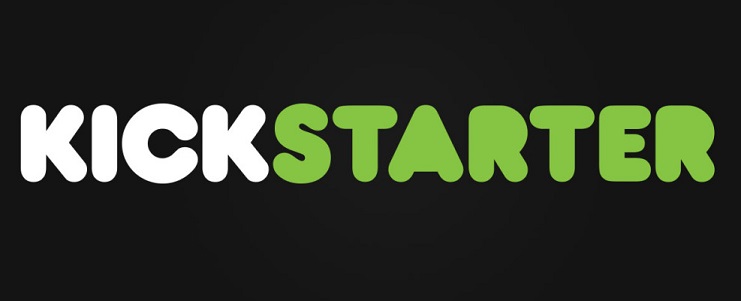Welcome to our weekly feature, “Question Of The Week.” As you can tell from that entirely original title each week we pose a question to our panel and they chime in with their opinions. No one sees one another’s responses until the story is posted, so each contributors thoughts are their own. Responses are posted in no particular order.
And remember, as with all editorials, the views expressed in this editorial are those of the authors and do not necessarily represent the views or opinions of Cliqist.com.
The question of the week for the week of 8/17/14 is :
Are crowdfunding backers a bunch of cry babies with unrealistic expectations?
[divider]Marcus Estrada
This question sounds a bit mean! But I do believe that crowdfunding backers do need to be made aware of what being a backer means, exactly. There is room for variation depending on how project leads choose to integrate backers into the development of games, but still, there are limits. If you back a game you are providing money on a donation basis. You may receive something back for this (beta access, private forums, etc) but unless you plunk down thousands of bucks don’t expect the developers to bend to your whims. They will create the best game they can and it may not be what you want – but that’s the risk you take with crowdfunding!.
To read more of Marcus’ work click here. To learn more about them check out our About Us page.
[divider]Nathaniel Liles
I’ve literally said that before, but I’m here to say that I wouldn’t say that. People who misunderstand crowdfunding do not, as a whole, belong on Kickstarter. If you back a project with the same mindset you have when you preorder a game, you’re making a mistake. If you don’t understand business or game development on at least a rudimentary level, you need to stop pledging. Pledging is simply showing support with dollars. Don’t pledge a dime you’re not willing to lose, because sometimes things go to crap. It’s often not a scam. Things don’t always go according to plan. Just… Ya know… Check yourself before you Shrek yourself..
To read more of Nathaniels’ work click here. To learn more about them check out our About Us page.
[divider]Julie Morley
Boy, that is a sensitive choice of words, Greg. Honestly, there is a little bit of yes and a little bit of no there. There is a portion of the backers that have some expectations that are particularly ridiculous, like they expect the developers to pull the game right out of the place the sun doesn’t shine the second the Kickstarter campaign concludes. To be fair, certain developers promise it too. It’s really hard to say, there’s gray area there. The developers are partly at fault and so are the backers.
I personally don’t believe it’s about the backers’ impatience or sour attitude, it’s just a matter of failed communication, previous experience, overly ambitious developers, and money. These people are putting money out there to support your passions and development endeavors, the least you could do is keep them informed and make sure they get their rewards. Lock in their faith. Keep it. Cherish it. Love the backers and their faith in you. They’re paying for your Ramen noodles, after all.
But that doesn’t give people the right to bash the developers when things go awry as well. Backers need to respect the developers as well and neither harass or belittle them. No drama allowed on either end.
See? Gray area. I don’t like this question – I support both parties here!
To read more of Julies’ work click here. To learn more about them check out our About Us page.
[divider]Ahmad Khan
Short Answer: Mostly the new ones ; Long Answer: According to my observations backers new to Kickstarter/IndieGogo are the one that expect unrealistic things from projects they back, sometimes it’s because they are unfamiliar with the challenges of indie video game development, other times they do not understand the limitation of money raised on crowd-funding websites; lastly they are just so jazzed about backing their passion projects that they feel entitled to have their preferences included in the project. The good news is that as people spend more time backing projects they eventually “mellow” out.
Ahmad is currently a guest contributor to Cliqist, look for more content from him in the future.
[divider]Greg Micek
I feel bad calling anyone a baby when they have to deal with some of the shady Kickstarter projects out there. However, when a developer announces a delay, or change of features, and people immediately pull out the torches and start calling for refunds I’m not sure what else to call them. Kickstarter (and IndieGogo) is a charity platform, not an investment one; once the money is donated try and forget about it. Did you pledge hundreds, or even thousands, of dollars on a project? Here’s a tip; don’t overfund, it’ll sting less when things don’t go the way you had hoped.
To read more of Gregs’ work click here. To learn more about them check out our About Us page.
[divider]Have a question you’d like our panel to answer? Post it below, or email greg@cliqist.com with your toughest crowdfunding questions! If you’d like to check out some of our previous Questions Of The Week., then go right ahead!
[facebook][tweet][Google][pinterest][follow id=”Cliqist” size=”large” count=”true” ]








I think that more and more Kickstarter is becoming thought of as a store. I am a comic book writer and artist, and currently my book Pariah Missouri is my 4th kickstarter. http://www.pariahmisouri.com So for books it’s very different than game/technology development and my “product” is pretty well defined, in fact the size, page number, art is all very much the deciding facts for most backers. I also think people want to see you have skin in the game and as much already completed as possible.
It’s all communication. Sometimes backers are whiny and annoying, sometimes creators are silent and stupid. Treat each other with respect and have honest and transparent communication. It’s not a store but it’s not a charity as someone said here, it’s something different. Creators need to remember backers backed an idea and a process, not the reward (backers could remember that as well)